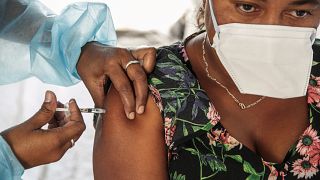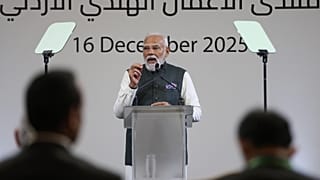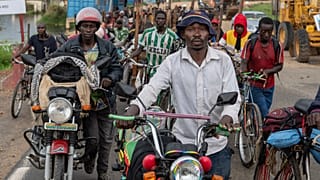Tunisia
Tunisia on Sunday started a week of coronavirus restrictions covering the Eid holiday, as hospitals battle to stay afloat as Covid-19 cases soar.
Prime Minister Hichem Mechichi said Friday that Tunisia was going through "the worst health crisis in its history" and that health facilities were at risk of collapse.
Wejdi Ben Raies, the sales and marketing director at Linde Gas Tunisia, outlines the current situation in the North African country.
"We saw an exponential increase (in cases) starting October until we reached a peak in the demand around mid-February. The demand (for oxygen) increased four times compared to the normal periods."
Until next Sunday, mosques, markets and non-essential shops must close, gatherings and family or cultural celebrations are banned, and people are forbidden from travelling between regions.
An overnight curfew begins at 7:00 pm (1800 GMT) instead of 10 pm and is in force until 5 am.
Schools have been closed since mid-April.
Shops along Tunis's central Habib Bourguiba Avenue and in the old city were all closed on Sunday, an AFP correspondent said.
But videos shared on social media appeared to show almost normal activity in several other parts of the country, including people without masks and failing to respect social distancing.
Wajdi Ben Raies explains the new approach to the crisis this time around.
"During the second wave, we instantly began importing the necessary amounts (of oxygen) from European countries and our partners in Italy and France. But, during this third wave, due to long distances, we chose to import from Algeria, which has fairly large reserves. However, we have no guarantee when it comes to the imports from Algeria, so we are trying to diversify them from many other countries."
The Eid al-Fitr holidays that mark the end of Ramadan are traditionally a time when Muslim families and friends gather together.
This year, the holiday is expected to begin on Thursday.
Tunisia, a country of almost 12 million, has officially recorded more than 319,000 coronavirus cases and 11,350 deaths.
Over 500 people are currently in intensive care, a level previously unseen in the North African country.
The country has set up field hospitals to deal with the influx of patients.
It is also struggling to meet its oxygen needs and has appealed for assistance from European countries and even neighbouring Algeria, struggling with its own health crisis.
A vaccination campaign launched in mid-March, a month later than planned, is moving more slowly than anticipated.
"The number of patients in hospitals has almost doubled in just a month," said Amen-Allah Messadi, a doctor on the country's Covid-19 scientific task force.
He added that oxygen consumption had "multiplied by four or six".











Go to video
South Africa’s unemployment rate drops slightly to 31.9%
01:14
Measles outbreak kills 17 in Indonesia’s east java
01:01
US limits new Covid-19 vaccines to high-risk groups, removes Pfizer for under-5s
Go to video
Russia limits Telegram and WhatsApp calls over security dispute
Go to video
What to know about the COVID variant that may cause 'razor blade' sore throats
Go to video
WHO approves landmark pandemic agreement to improve response in event of future pandemic